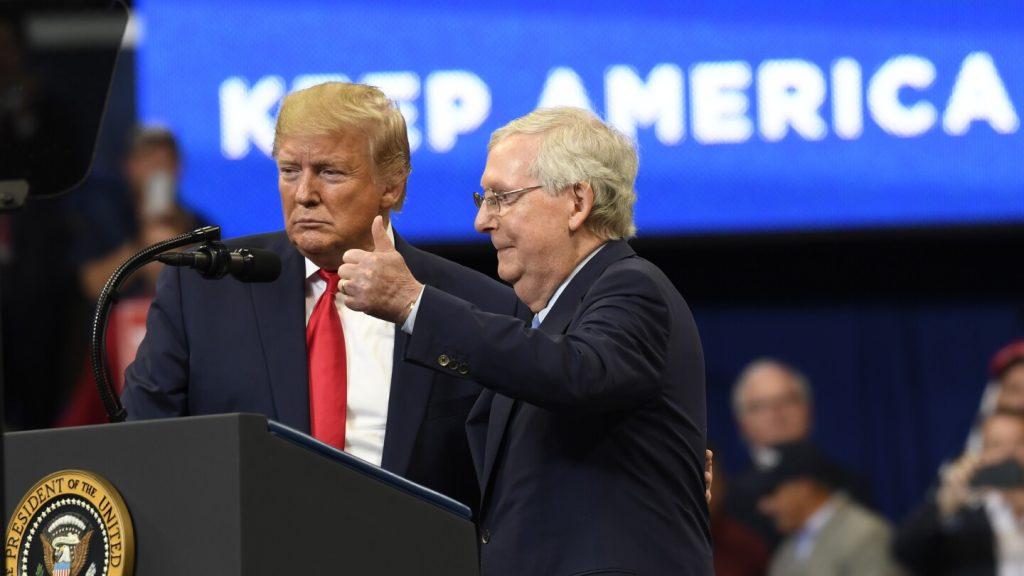Senate Republicans are gearing up for a leadership shakeup as they prepare to replace longtime leader Mitch McConnell in a secret ballot on November 13th. The front-runners for the position are John Thune of South Dakota and John Cornyn of Texas, both of whom are campaigning and fundraising for support from their colleagues. With McConnell stepping aside after nearly two decades as leader, the outcome of the ballot could have long-lasting implications for the direction of the party and potentially determine the next Senate majority leader if Republicans win enough seats in the upcoming election.
Despite the high stakes, many Republican senators have not publicly endorsed a candidate yet, with some still undecided. Florida Senator Rick Scott, who is also in the race but focusing on his own reelection bid, could act as a spoiler. Both Thune and Cornyn, known as “the two Johns,” have similar backgrounds and lean towards the more traditional wing of the Republican Party. However, they have both expressed a desire to move on from the McConnell era with a more open approach, distinguishing themselves by publicly supporting Donald Trump in the current presidential election.
The potential endorsement of a candidate by Trump could be a deciding factor in the leadership race, with some senators urging him to stay above the fray and avoid picking sides. Despite previous disagreements with Trump, both Thune and Cornyn have been actively engaging with the former president in recent months, attending campaign events and building relationships. Scott, a longtime friend of Trump, could also benefit from an endorsement, potentially influencing the outcome of the race. As the candidates navigate their relationships with Trump and his supporters, their ability to work with the former president may play a crucial role in securing the leadership position.
In addition to garnering support through private meetings, Thune and Cornyn have been actively fundraising and campaigning for their fellow senators across the country. Thune has made numerous campaign stops and raised significant funds for Senate races, while Cornyn has a long history of fundraising for Republicans during his tenure in the Senate. Both candidates have similar policy stances, generally aligning with the party while occasionally working across the aisle on bipartisan issues. However, the support from a minority faction of Republican senators who have clashed with McConnell in the past remains uncertain, as they may have different expectations for the next leader’s approach to legislation and working with Trump.
As the leadership race unfolds, candidates like Cornyn have proposed instituting term limits for the Republican leader to increase engagement and empower individual senators. This move could appeal to members of the conservative faction within the party who have pushed for a shift in power dynamics within the Senate. While Thune has not shown interest in negotiating on specific demands from this group, he has expressed a willingness to make changes to the leader’s role to empower individual members and open up the amendment process. Ultimately, the outcome of the leadership race will not only shape the future of the Republican Party but also influence the Senate’s dynamics in the coming years.














